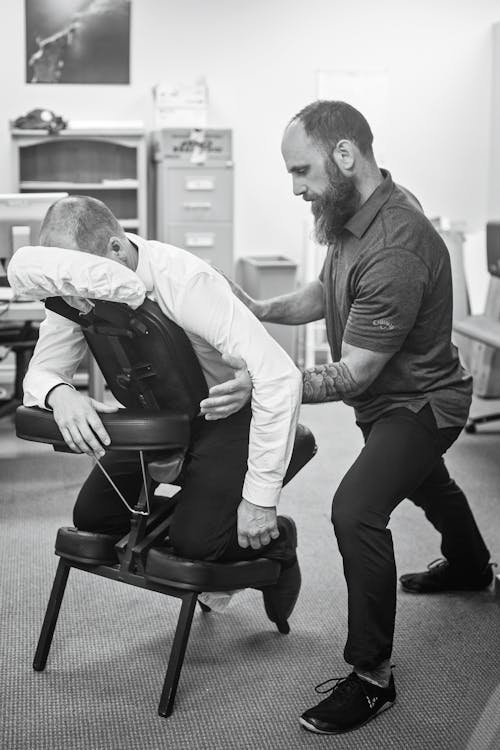Has Your LTD Claim for Back Pain Been Denied? |
January 29, 2021, Kitchener, Ontario
Posted by: Robert Deutschmann, Personal Injury Lawyer

You’ve been in an accident and hurt your back. It doesn’t seem what you do the pain is real and it isn’t going away. You used up your sick time and now you are filing for LTD because you just can’t work with the claim. What happens when your insurer doesn’t believe you though and your claim is denied? Call us here at Deutschmann Law. We have plenty of experience with insurance companies and LTD claims for back pain. We can help you get the benefits you deserve.
Back injuries and the resulting pain can come from a slip and fall accident, a bike or motor bike accident, or if you are hit by a car as a pedestrian. Here are some of the most common questions about LTD claims. Click through to our LTD page to see more questions and call us if you need help.
- What is Long-Term Disability insurance? Long-Term Disability insurance provides you with payment of a portion of your income when you become disabled. It is important that you review your Long-Term Disability insurance policy so that you are aware of key terms like the definition of disability, the amount that you would be paid and for what period of time. If you wait to review your policy until you are disabled then that will be too late. You need to ensure that your Long-Term Disability insurance policy will provide you and your family with adequate coverage if you become disabled.
- Who pays for Long-Term Disability insurance coverage? There are a number of ways that Long-Term Disability insurance can be paid for. The employer can pay, the employee may pay or the employee and employer may share the cost. The issue of who pays will have some significant impact on whether the Long-Term Disability insurance payments are taxed. If the employee pays the premiums for the Long-Term Disability Insurance then any payments to the disabled employee under the Long-Term Disability insurance coverage are not taxable. If the employer pays for the premiums associated with the Long-Term Disability insurance plan then the Long-Term Disability insurance payments, when made to the disabled employee, are taxable. You should consult with your human resources department, and financial planner, to determine whether your benefits would be taxable, particularly under a Long-Term Disability insurance plan where contributions to the premium is made by both the employer and employee.
- How long will I have to wait to collect Long-Term Disability insurance benefits? You will need to review your long term disability insurance policy to determine how long you have to wait to collect benefits. If your employer has a short term disability insurance plan you will usually be entitled to access short term disability insurance benefits under that plan after a short waiting period.
- How disabled do I have to be to qualify for long term disability insurance benefits? Generally, you will qualify for long term disability insurance benefits if you are not able to do all, or substantially all, of the elements of your current job. Many long term disability insurance policies indicate that in order to qualify for long term disability insurance benefits, you will have to prove that not only can you not do your own job, but at some point, usually 24 month later, you cannot do any job that you may be qualified to do by reason of your education, training or experience. You should carefully review your long term disability insurance policy so that you understand the terms and conditions that will apply to you if you become disabled.
- What does it mean when a long-term disability Insurance policy says I must be totally disabled or completely disabled to qualify for long-term disability insurance benefits? Most long-term disability insurance policies provide a definition of total disability or completely disabled. Totally or completely disabled from working means that you are unable to carry out the normal functions of your usual job. It does not mean that you are completely physically unable to do any part of your job, but that your injury or illness is such that common sense requires you to stop working so you can focus on getting better.
|
Posted under Minor Injury Guidelines, Motorcycle Accidents, Pedestrian Accidents, Personal Injury
View All Posts |
About Deutschmann Law
Deutschmann Law serves South-Western Ontario with offices in Kitchener-Waterloo, Cambridge, Woodstock, Brantford, Stratford and Ayr. The law practice of Robert Deutschmann focuses almost exclusively in personal injury and disability insurance matters. For more information, please visit www.deutschmannlaw.com or call us at 1-519-742-7774.
The opinions expressed here, while intended to provide useful information, should not be interpreted as legal recommendations or advice.
|
|
|


